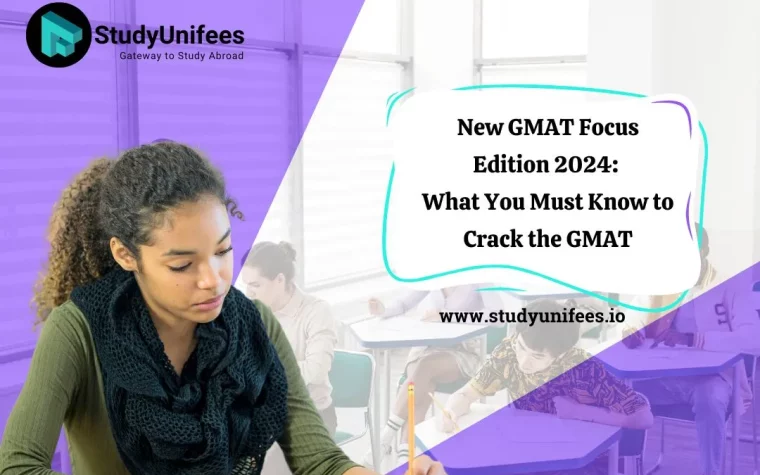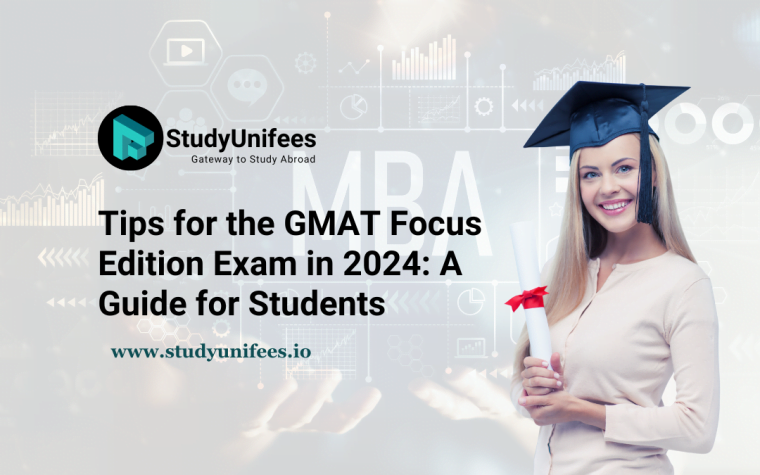The GMAT Focus Edition 2024 introduces several new features and updates designed to streamline the testing experience and better assess the skills needed for success in business school. Understanding these updates and how to tackle each section is crucial for achieving a high score. This comprehensive guide will walk you through the different sections, question types, reasons for the introduction of this new edition, and the advantages and disadvantages compared to the new GRE.
Sections on the GMAT Focus Edition
The GMAT Focus Edition 2024 is structured to evaluate a candidate’s analytical, quantitative, verbal, and data interpretation skills. It is divided into three main sections:
- Quantitative Reasoning (QR)
- Verbal Reasoning (VR)
- Data Insights (DI)
Each section is designed to test specific skills critical for business school and professional success.
Quantitative Reasoning (QR)
The Quantitative Reasoning section assesses your mathematical skills, including problem-solving and data sufficiency. This section focuses on your ability to reason quantitatively, solve quantitative problems, and interpret graphic data.
Question Types:
- Problem Solving: These questions test your ability to solve mathematical problems using algebra, geometry, and arithmetic.
- Sample Question: If 2x+3=72x + 3 = 7, what is the value of xx?
- Answer: x=2x = 2
- Data Sufficiency: These questions evaluate your ability to analyze a quantitative problem and determine whether you have enough information to solve it.
- Sample Question: Is x>3x > 3?
- x+2>5x + 2 > 5
- x−1>2x – 1 > 2
- Answer: Statement 1 alone is sufficient.
- Sample Question: Is x>3x > 3?
Verbal Reasoning (VR)
The Verbal Reasoning section measures your ability to read and understand written material, evaluate arguments, and draw inferences. It includes three types of questions:
- Reading Comprehension: These questions test your ability to understand and interpret information from written passages.
- Sample Question: What is the primary purpose of the passage?
- Answer: To explain the effects of a new policy.
- Critical Reasoning: These questions assess your ability to evaluate arguments and develop or critique plans of action.
- Sample Question: Which of the following, if true, would most strengthen the author’s argument?
- Answer: A study showing increased efficiency after the policy change.
Data Insights (DI)
The Data Insights section is unique to the GMAT Focus Edition and tests your ability to interpret and analyze data from various sources. It combines elements of the Integrated Reasoning and Analytical Writing sections from the previous GMAT format.
Question Types:
- Multi-Source Reasoning: These questions require you to analyze data from multiple sources, such as text, tables, and graphics, to answer questions.
- Sample Question: Based on the data from the table and the graph, what was the percentage increase in sales from Q1 to Q2?
- Answer: 25%
- Table Analysis: These questions involve interpreting and manipulating data presented in tables to identify relevant information.
- Sample Question: Sort the data in the table to find the year with the highest sales.
- Answer: 2023
- Graphics Interpretation: These questions require you to analyze graphical data to draw conclusions and make inferences.
- Sample Question: Based on the bar chart, which product category saw the largest increase in sales?
- Answer: Electronics
- Two-Part Analysis: These questions involve solving complex problems that require responses to two interrelated questions.
- Sample Question: If the company’s profit margin is 20% and total revenue is $1,000,000, what is the profit? What would the profit be if the profit margin increased to 25%?
- Answer: $200,000 and $250,000
Reasons for Introducing the GMAT Focus Edition
The GMAT Focus Edition has been introduced for several key reasons:
- Relevance to Business Schools: The GMAT Focus Edition is designed to align more closely with the skills required in modern business environments, emphasizing critical thinking, data analysis, and effective communication.
- Improved Assessment: The new sections and question types provide a more comprehensive assessment of a candidate’s abilities, ensuring that test-takers are evaluated on relevant skills.
- Enhanced User Experience: The updated format aims to streamline the test-taking process, making it more user-friendly and less time-consuming for candidates.
- Adaptability: The GMAT Focus Edition is designed to adapt to the evolving needs of business education and the global job market, ensuring that it remains a relevant and valuable assessment tool.
Advantages and Disadvantages Compared to the New GRE
Also Watch : GRE General Test Format
Advantages of the GMAT Focus Edition:
- Business School Preference: Many business schools prefer the GMAT Focus Edition as it is specifically designed for MBA and business-related programs, while the GRE is more general.
- Data Insights Section: The DI section uniquely tests skills directly applicable to business situations, providing a distinct advantage for business school applicants.
- Quantitative Emphasis: The GMAT Focus Edition places a stronger emphasis on quantitative skills, which are crucial for success in business school and related careers.
- Structured Format: The GMAT’s structure is often seen as more straightforward and predictable, allowing for focused preparation and strategy development.
Disadvantages of the GMAT Focus Edition:
- Limited Test Centers: The GMAT may have fewer test centers available compared to the GRE, which is offered in a wider range of locations globally.
- Cost: The GMAT can be more expensive than the GRE, potentially making it less accessible for some candidates.
- Score Validity: While the GMAT Focus Edition is widely accepted, the GRE is accepted by a broader range of graduate programs, offering more flexibility for applicants who might consider non-business-related programs.
- Test Anxiety: The GMAT’s focus on quantitative and analytical skills can be daunting for some test-takers, potentially increasing test anxiety compared to the GRE’s more varied question types.
Tips for Preparing for the GMAT Focus Edition
- Understand the Format: Familiarize yourself with the structure and types of questions in the GMAT Focus Edition to reduce surprises on test day.
- Practice Regularly: Use official GMAT practice materials and take timed practice tests to build your stamina and improve your time management skills.
- Focus on Weak Areas: Identify and target your weak areas, whether they are in quantitative, verbal, or data insights sections, to ensure a balanced performance.
- Develop a Study Plan: Create a study schedule that allows ample time for each section, ensuring consistent and thorough preparation.
- Seek Professional Help: Consider enrolling in a GMAT prep course or hiring a tutor if you need additional support or structure in your study routine.
Conclusion
The GMAT Focus Edition 2024 represents a significant update to the traditional GMAT, with new features designed to better assess the skills needed for success in business school. Understanding the different sections, question types, and reasons behind these changes is crucial for effective preparation. Additionally, weighing the advantages and disadvantages of the GMAT Focus Edition compared to the new GRE can help you make an informed decision about which test best suits your needs.
As you embark on your preparation journey, remember that consistent practice, targeted study, and a thorough understanding of the test format are key to success. The GMAT Focus Edition offers a unique opportunity to showcase your abilities and readiness for the challenges of business school and beyond. Embrace the updates, leverage the resources available, and approach your preparation with confidence. Good luck!



